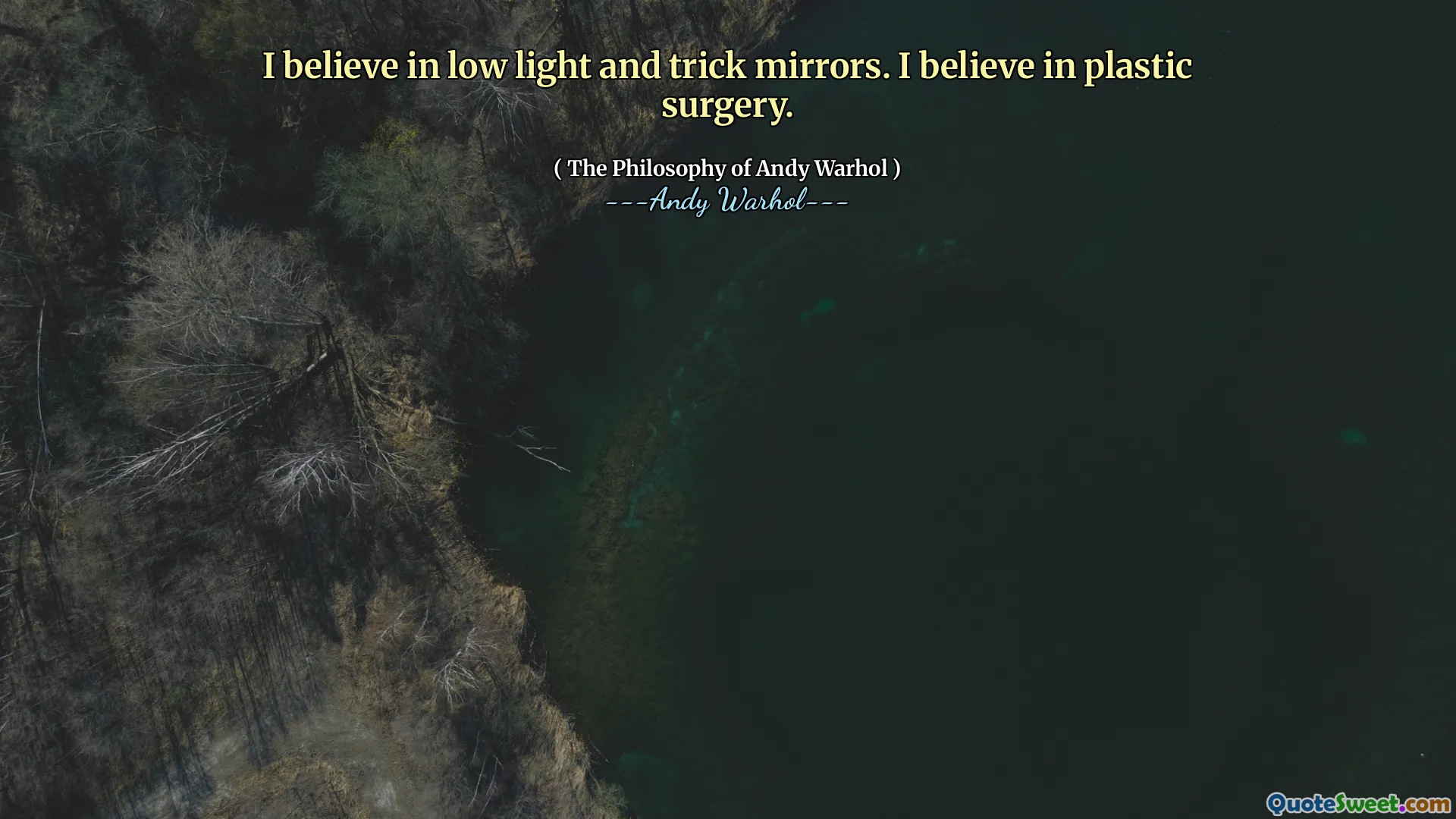
I believe in low light and trick mirrors. I believe in plastic surgery.
This quote from Andy Warhol reflects a nuanced perspective on perception, reality, and self-presentation. The mention of "low light and trick mirrors" suggests a fascination with how appearances can be manipulated or altered, presenting a different reality than what might be seen under clearer, harsher observational conditions. It points towards a world where the boundary between reality and illusion is blurred—an idea deeply connected to Warhol's artistic exploration of fame, identity, and consumer culture.
By adding "I believe in plastic surgery," Warhol emphasizes the notion that physical alteration and artificial enhancement are accepted tools for reshaping oneself. This is particularly striking given Warhol's era, where such concepts were less openly embraced than today. His articulation implies a belief not only in the external transformation but also in the broader idea that identity and aesthetic can be constructed and reconstructed. It resonates with the overarching themes in Warhol's work that revolved around commodification and reinvention.
From a psychological viewpoint, the quote invites reflection on societal standards of beauty and authenticity. It challenges the notion that we must present our unvarnished selves to the world, recognizing instead that everyone engages in a form of self-curation, whether by subtle means like lighting or more direct ones like plastic surgery.
In a philosophical sense, the quote encourages questioning how deeply we trust our perceptions and what constitutes the "real" when perception is so malleable. Warhol's words make us consider that life itself can resemble an artifice—beautified, fashioned, and performed according to the desires and needs of the individual or society.







